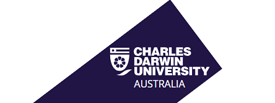About Diploma Of Network Engineering (yneng1) in Charles Darwin University
As a network engineer, you are valuable to your IT team because you are responsible for the design, build and management of innovative communication networks essential to our everyday lives.
This diploma prepares you for entry-level network engineering roles. You will have the skills and knowledge to design, operate and maintain networks that play a crucial role in the infrastructure of industry and government organizations. Your coursework will cover key areas including data networks and their implementation.
You will also combine academic studies with practical experience further adding to your broad skill set making you stand out from the crowd in a competitive industry. You can also use this qualification to move into our other degree programs such as the Bachelor of Information Technology or Bachelor of Software Engineering Honors.
Get a competitive edge with a Microsoft certification. We offer study assistance to help you get the qualification.
Course Structure
This one year course covers the essentials of data networks and their implementation. The course has a strong practical emphasis and students are given extensive opportunities to put theory into practice.
Successful completion of the Diploma of Network Engineering will enable entry into the second year of Charles Darwin University's Bachelor of Information Technology or Bachelor of Software Engineering Honors.
This course is available externally by distance learning for those who are not able to attend classes on campus on a regular basis. Distance learning requires reliable broadband internet access.
Applicants must have completed international qualification equivalent to Australian Year 12.
IELTS Academic Module - A minimum overall score of 5.5 with no band less than 5.0; Cambridge Advanced English (CAE) - A minimum overall score of 165; Navitas Academic English - An overall pass and 60% in Academic English 2; Pearson Test of English (PTE) Academic module - A minimum overall score of 42 with no less than 36 in Reading, Writing, Listening and Speaking; TOEFL Internet based Test (iBT) - A minimum overall score of 46 with a minimum writing score of 21.
For more details, please visit university site.
Charles Darwin University Highlights
| Type |
Public |
| Campus setting |
Urban |
| Establishment year |
2003 |
| Location |
Darwin, Northern Territory |
| Number of campuses |
5 |
| Annual Endowment |
301 Million AUD |
| Academic staff |
580 |
| Total students |
20124 |
| International students |
17.5% |
| Graduate Employment |
83.39% |
| Mode of program |
On campus/ Online/ Full time/ Part time |
Charles Darwin University Average Tuition Fees And Other Expenses
The tuition fees and other expenses at Charles Darwin University (CDU) can vary depending on the program and level of study. Here are some general estimates of the average tuition fees and other expenses for international students:
-
Tuition fees: The annual tuition fees for international students can range from AUD 24,000 to AUD 39,000 depending on the program and level of study. Some programs, such as medicine, may have higher tuition fees.
-
Overseas Student Health Cover (OSHC): International students are required to have health insurance while studying in Australia. The cost of OSHC can range from AUD 500 to AUD 2,000 per year depending on the level of cover.
-
Accommodation: The cost of accommodation can vary depending on the type and location of the accommodation. On-campus accommodation can range from AUD 230 to AUD 350 per week, while off-campus accommodation can range from AUD 150 to AUD 500 per week.
-
Living expenses: The cost of living in Darwin can vary depending on the lifestyle and spending habits of the student. A rough estimate of living expenses, including food, transportation, and other expenses, is around AUD 18,000 to AUD 20,000 per year.
It is important to note that these are only estimates and the actual expenses may vary depending on the individual circumstances of the student. Make sure to check CDU's website for the specific tuition fees and other expenses for your chosen program.
For reference, the cost breakdown is shown below:
| Program |
Tuition Fee per year |
| Bachelor’s degree |
25,328 – 33,480 AUD |
| Master’s degree |
28,104 - 34,680 AUD |
| Undergraduate associate degree |
29,616 – 33,480 AUD |
| Undergraduate diploma |
26,968 – 29,616 AUD |
| Graduate associate degree |
25,328 – 28,104 AUD |
| Graduate diploma |
32760 AUD |
- For college students in Darwin and Sydney, the cost of living may be different. Below is an estimate for both places as a guide:
| Expense |
Cost in Darwin (per week) |
Cost in Sydney (per week) |
| Food and groceries |
80-280 AUD |
80-280 AUD |
| Gas and electricity |
35-140 AUD |
35-140 AUD |
| Phone and Internet |
20-55 AUD |
20-55 AUD |
| Transportation |
7 AUD |
30-55 AUD |
| Car (if owned by students) |
150-260 AUD |
150-260 AUD |
| Entertainment expenses |
80-150 AUD |
80-150 AUD |
| Accommodation expenses |
175-227.50 AUD |
283-750 AUD |
